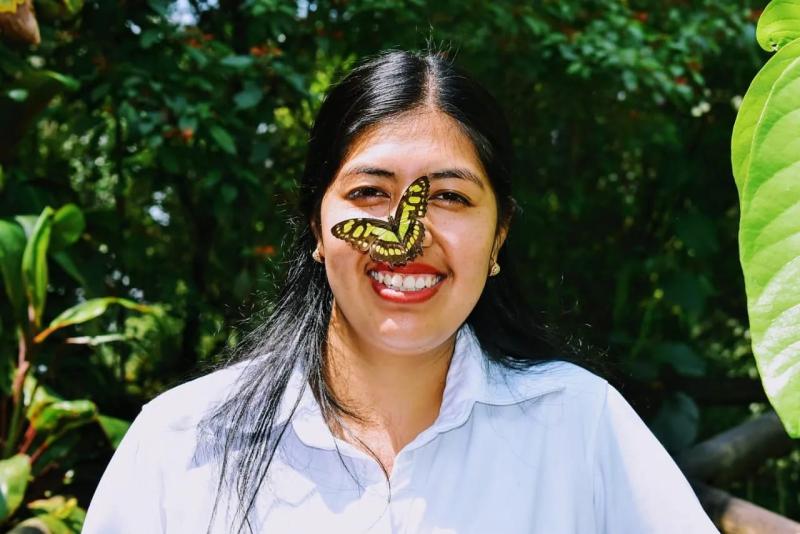

WPHF - “We’re at a crucial time to catalyze the collective action of those who are defending human rights and protecting the environment, meet their urgent demands, and recognize their potential as peacebuilders.”
Nohora Alejandra Quiguantar is an indigenous youth leader, environmental human rights defender and WPHF partner from Nariño, Colombia, where she leads Tejiendo Pensamiento-Indigenous Women for the Climate, a grassroots organization working to empower women and girls to play a greater role in preserving ecosystems and biodiversity.
“Creating opportunities for young women and girls in rural areas and connecting youth leaders from different communities is at the heart of what I do. If we don’t involve and listen to local women, we won’t know what’s happening on the ground.”
Over the past years, Nohora Alejandra has been actively working to enhance the participation and leadership of indigenous women and girls in climate justice issues, which remain integral to Colombia’s peace agreement and transitional justice process. Thanks to the financial support she received through the WPHF Window for Women Human Rights Defenders, she traveled to Egypt to attend the 2022 United Nations Climate Change Conference (COP 27), where she highlighted the work of women environmental human rights defenders in Colombia and put forward innovative solutions to galvanize global climate action.
“We need funds like the WPHF Window for Women Human Rights Defenders to strengthen women’s participation and leadership in decision-making spaces, and make their voices heard in international platforms.”
Nohora Alejandra’s peace activism is deeply rooted in Colombia’s armed conflict, during which women and girls were disproportionately affected. Growing up in Nariño, one of the regions that bore the brunt of armed violence and internal displacement, she saw firsthand the abuses and attacks to which women leaders were subject — but also the critical role they played as peacebuilders and caretakers. Today, Colombia remains the most dangerous country for human rights defenders in Latin America, and retaliation against them continues to grow at an alarming rate.
“Women human rights defenders are being killed for protecting the land our lives depend on. This reality has been with us since we were children, reminding us of the violations our grandmothers suffered during the war — of their rights, bodies, and dreams.”
For Nohora Alejandra, speaking about peace and social justice requires acknowledging climate change and its unequal impact on certain groups and regions. As a trained biologist, she’s committed to raising awareness of issues like mercury water pollution, illicit cultivation, land exploitation, and climate displacement, as well as addressing their disproportionate impact on women and girls, particularly in rural areas.
“Not having access to a healthy and sustainable environment is a human rights violation that requires a commitment from the whole world, not just the Global South. We must invest in protecting our ecosystems rather than selling them; we need to give value to life, not to gold.”
Originally published on wphfund.org